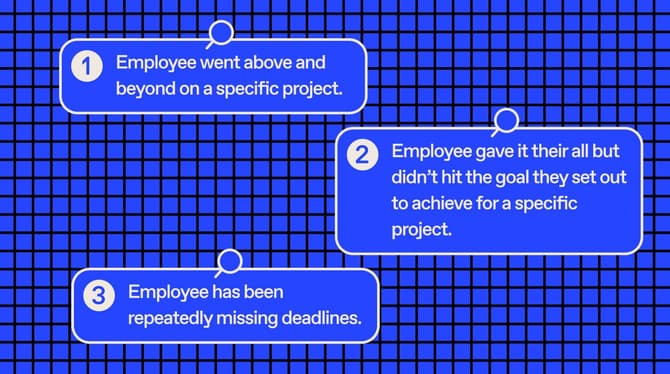For most people, the human resources team is their main point of contact throughout their employee journey: from the very first nerve-wracking moments of the recruitment process to bittersweet exit interviews, an HR professional is usually there to guide you through it all.
Working in tandem with senior leaders and managers, your HR reps are also in the unique position to help build and maintain a great workplace experience. And one of the most sure-fire ways to help foster a positive experience is by ensuring that your employees feel engaged and motivated in their daily projects.
But keeping engagement high is sometimes easier said than done; the reality of remote work and major shifts across industries present a whole new set of challenges to the employee experience. While there may be some obstacles along the way, your HR department is there to help ensure employees are happy, motivated, and engaged.
In this article, we'll explore some of the ways in which your human resources team can implement effective strategies to drive employee engagement.
Exclusive online summit
·
May 23 2024
Moments that matter: how to seed great work
Discover the ways HR can help improve employee engagement
What is employee engagement in HR
As you may already know, employee engagement can be defined as the emotional connection an employee has to their job. In most organizations, the HR department is at the head of the recruitment process, but they're also tasked with ensuring employee well-being and fostering a happy, productive company culture. The HR department is also closely linked to every other unit in your organization and is perfectly poised to offer insight into how managers can improve engagement on their teams.
The importance of employee engagement
There are no ifs, ands, or buts about it: ensuring your employees are engaged is vital to the overall success of your organization. Without an engaged workforce, your company will experience:
- Lower employee retention
- Increased absenteeism
- Unachieved business goals
- Higher workplace stress
If that wasn't enough, Gallup has also reported that businesses with highly engaged employees enjoy an increase in profitability of 23%. If there's a downside to high employee engagement, we sure haven't found one yet.
Strategies to improve employee engagement
It's all well and good to discuss the numerous benefits of keeping employee engagement high, but how should HR professionals actually go about implementing concrete employee engagement strategies to keep your top talent around for the long haul?
It's important to note that only employing a single strategy will be less effective in empowering employees. We recommend trying a combination (or all!) of the following initiatives to really improve engagement on your teams.
1. Choose the best employee for each position
During the hiring process, the HR team is responsible for helping find the best candidate for different roles. Since they're aware of a team's needs and the company's broader objectives, they can weigh in on who they think the best fit could be.
This also means that it's HR's responsibility to ensure an employee thrives on their team. So if a team member seems to be struggling in their unit, an HR rep should work alongside their manager to see if they might be better suited under different leadership or honing different skills in a new role.
2. Offer a stellar onboarding
A great workplace experience begins with exceptional onboarding. When an employee joins a company, they usually have a million and one questions about things like their job role and compensation, but also about company culture and the resources available to them.
Onboarding tools like Sofstart help HR leaders and managers offer new employees a seamless introduction to the company and can really go a long way in establishing high employee engagement from the get-go.
Does your HR department oversee a distributed team? Check out this ultimate checklist for remote employee onboarding to get your new hires started.
3. Practice clear and open communication
Improving communication is key to the success of any team and that rings especially true for HR departments. For many organizations, human resources also double as the main point of communication between senior leaders and the rest of the company, making transparency of utmost importance.
Open channels of communication must also extend to one-on-one sessions with employees. For the HR department to successfully improve engagement, employees must feel they can trust them with their concerns and questions. If you get the feeling that employee satisfaction and engagement are dipping, conduct stay interviews to avoid employee turnover.
If you're not familiar with the stay interview, check out these six questions to get the conversation going.
4. Collect employee feedback
One of the most effective engagement initiatives we'll always rally behind is collecting anonymous feedback from your teams. Many employees might not feel comfortable submitting feedback directly to their managers, so it's crucial to provide teams with a safe space to submit their thoughts and opinions without fear of repercussion. Use a survey template to measure employee engagement and ask your team members for feedback on areas that could use some improvement.
After you've gathered employee feedback, take a look with managers to see which employee engagement metrics stand out and if there are issues that need addressing. From there, you can work with team leads to craft employee engagement activities that best suit individual units.
📋 Follow these steps to create your own employee engagement survey and start collecting invaluable employee feedback.
5. Deliver on wellness programs
With Officevibe data indicating that a quarter of employees feel like they have an unhealthy work-life balance, HR teams must prioritize mental and physical health to keep engaging employees. When people are tired, stressed, or on the verge of burnout, they obviously cannot be expected to perform at their best.
Make space in the budget for wellness programs that allow employees to stay active and provide access to mental health resources. An employee wellness survey can also provide a wealth of insight into the well-being of your people. Ask the right questions and keep the conversation going to engage employees.
6. Promote recognition
In an ideal world, employees and managers would be doling out acknowledgments to express their gratitude, but according to Officevibe data, only 66% of employees are satisfied with the frequency at which they receive recognition.
Promoting peer-to-peer recognition platforms that let employees thank their colleagues or give props after a job well done is one of the best low-cost and high-reward engagement initiatives HR departments can implement.
Make gratitude a cornerstone of your employee experience and learn how you can create a culture of recognition in the workplace.
7. Encourage team building activities
If your organization oversees a distributed team, establishing genuine connections can prove to be challenging. By encouraging and organizing team-building activities, HR can help bring that "human" touch back to your department.
Suggest some of these unique activities to keep engaging employees:
- Innovation challenges
- Job rotation programs
- Team potluck dinners
- Interest-based games and events
Looking for more team collaboration inspiration? Try these remote teamwork tips!
8. Provide professional development opportunities
Last but not least, providing development opportunities is a great and productive employee engagement strategy. Your people are creative and driven, but sometimes they need help finding and accessing professional development courses to fine-tune or enhance their skills.
HR professionals can send engagement surveys to check in with their teams to see if there are certain topics they'd like to learn more about. Workshops, lunch and learns, and language courses can offer employees a wealth of personal and professional knowledge and can even help bring about business success across the board.
How workplace experience tools can boost employee engagement
Your HR team is at the heart of the employee journey. Their raison d'etre is to help managers find the best people for their teams and then ensure they feel engaged in their work. But even the most knowledgeable HR professionals can use a little help every once in a while to keep employee engagement high.
Luckily, there are tools out there, like Officevibe's employee engagement solution, that allow you to collect employee feedback and measure engagement. With data-backed insights, you can use your results to shape employee engagement strategies, boost business success, and offer an all-around stellar employee experience.



